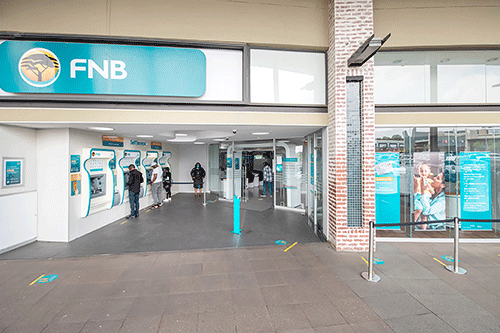First National Bank (FNB) of Namibia says it cannot take responsibility for those who lost money to fraudsters through its eWallet service.
According to the bank, the victims simply fell prey to the scammers by disclosing their private information in different ways.
On the bank’s end, however, security is watertight and up to the global standards.
Tracy Eagles, who is FirstRand Namibia chief marketing officer, said FNB is concerned with its customers outcry and is doing everything in its power to ensure their systems are not penetrated.
“Our systems are up to standard. Fraudsters, when they call you, they sound so real that many of the victims release their private information to them. But be careful, if you feel threatened, feel free to get in touch with us. Fraudsters wait until the opportune time because they have access to your account,” she warned during a press briefing hosted by FNB to address the
matter. In recent days, many FNB clients lost their money through eWallet services,
bringing the bank’s security into question, especially on the different social media platform.
FNB eWallet allows customers to send money to anyone with a valid Namibian cellphone number.
The money is transferred instantly and can be used to withdraw cash from
FNB ATMs, buy prepaid airtime, electricity and pay for DStv, GOtv and top up your Boxoffice account.
Furthermore, executive for retail
banking, Nangula Kauluma added that the bank remains concerned about the way opportunistic criminals are exploiting customers in order to obtain critical information that enables them to subsequently employ their criminal
scheme.
Kauluma noted they are working with
law enforcement and that some individuals
in this regard have already been
apprehended.
“Majority of our customers have not
been impacted by these opportunistic fraudsters. Approximately 0.06% of 1.3 million eWallet holders and 788 transactions in the period of August 2022 to August 2023 have been impacted as a result of fraudulent activity,” she added.
This resulted in a value of about N$600 000.
At the conference, the bank added, in the world of increasing digital technology, the way tight security is maintained has evolved.
Thus, customers now use tools such as the one-time-pin (OTP) and personal identification number (PIN) for different purposes to manage their own banking and personal security on their own devices, that led to fraudsters to advance from physical robbing to now going digital.
In efforts to clear that the scandal does
not come from insiders, Kauluma said OTPs and PINs are created from a randomised series of numbers that are automatically generated and not created in any manual way.
Yeoman Hamilton, who is the head of transactional and digital banking, emphasised that OTPs that have been shared some time ago can have an effect to today’s eWallet fraud.
He noted sharing the OTPs or PINs anytime with anyone have the ability to put customers funds at risk. Hamilton advised that the bank will never ask for OTP or PIN.


